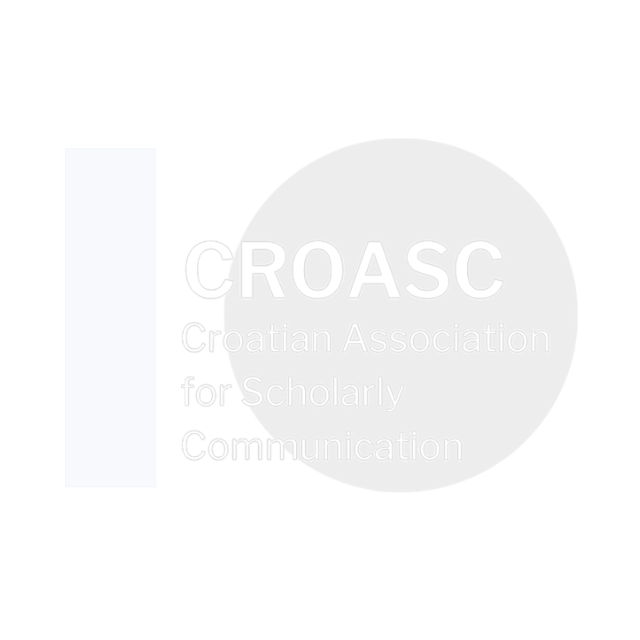Fostering a Culture of Data Citation for High-Quality Research
short talk × friday × 9.00-10.30

farah karim
GESIS Leibniz Institute
CESSDA Data Citation Working Group
Christina Bornatici
FORS – Swiss Centre of Expertise in the Social Sciences
CESSDA Data Citation Working Group
Research data play a fundamental role in the research process. Yet, they are still not consistently recognised as fully-fledged scholarly outputs and are often not specifically cited. Achieving high-quality research requires not only rigorous methodology and transparent reporting but also the responsible and systematic citation of all research components, including data. Transparency, reproducibility, and accessibility — core values of Open Science and the FAIR principles (Wilkinson et al., 2016) frameworks — are inherently strengthened when data are properly cited.
Proper data citation ensures that data authors receive appropriate credit for their work. It enhances findability and accessibility of datasets, facilitating the verification and replication of research, while also promoting transparency and enabling the reuse of data in new research. Furthermore, proper citation practices are critical for elevating the visibility and impact of data and for recognising data as legitimate scholarly contributions that may be addressed as independent research outputs. Carefully managed, curated and documented data are essential for high-quality research. Recognising the significant work invested in producing and sharing high-quality research data is therefore important when assessing individual research careers and research-performing organisations.
Despite growing recognition of data as a vital component of the research process, current data citation practices remain inconsistent and underdeveloped across disciplines (Yoon et al., 2019; Zhao et al., 2018), although a relative increase has been observed in recent years (Gregory et al., 2023). In many cases, datasets are (re)used without proper citation, and citation formats are inconsistent and lack essential information such as the specific version cited and a persistent identifier. These shortcomings hinder the visibility of data authors, limit the reproducibility of research, and create barriers to scientometric analysis of data sharing and reuse. Addressing these issues is vital for ensuring openness and FAIRness as well as ethical and impactful use of research data.
To support the advancement of data citation, the Consortium of European Social Science Data Archives (CESSDA) has established a dedicated Working Group on Data Citation. CESSDA is a European research infrastructure that offers extensive, integrated, and sustainable data services to the social sciences and unites data archives across Europe. Its mission is to promote social science research results and support national and international research and cooperation. The Working Group on Data Citation has developed practical recommendations to foster a sustainable data citation culture within the social sciences (Bornatici et al., 2025). These recommendations outline the core components of a data citation—authors, title, publication year, version, data publisher, and a persistent identifier—and additional elements that enhance precision and clarity. Even more importantly, the recommendations provide concrete, advised best practices and technical implementations for researchers and strategic institutions. They reflect on the pivotal roles played by research-performing and research-funding organisations, journals and publishers, and data repositories in normalising data citation. From providing technical infrastructure to shaping editorial policies and funding mandates, these stakeholders are instrumental in cultivating a culture of citation that extends beyond the traditional practice of only citing text publications.
Our contribution will present the key elements of these recommendations, targeting researchers, journal editors and publishers, as well as strategic actors involved in research policy and infrastructure, highlighting pathways for widespread adoption. By encouraging researchers to cite data with the same care as they cite literature, we seek to reinforce scientific integrity, improve traceability of findings, enable new indicators for Open Science practices, and elevate the overall quality of research. We invite the broader research community to join us in embedding data citation into publication workflows and evaluation systems, and to help build a scholarly ecosystem where data are fully recognised as central, citable contributions to scientific knowledge.
keywords
attribution; CESSDA; data citation; research assessment; research data; scholarly communication
References
Bornatici, C., Jernung, A., Alaterä, T. J., Tveit Sandberg, L., Strand, K., Štebe, J., & Trtíková, I. (2025). CESSDA Recommendations on Data Citation: Practical Recommendations for Key Stakeholders. https://doi.org/10.5281/zenodo.15043854
Gregory, K., Ninkov, A., Ripp, C., Roblin, E., Peters, I., & Haustein, S. (2023). Tracing data: A survey investigating disciplinary differences in data citation. Quantitative Science Studies, 4(3), 622-649. https://doi.org/10.1162/qss_a_00264
Wilkinson, M. D., Dumontier, M., Aalbersberg, I. J., Appleton, G., Axton, M., … Mons, B. (2016). The FAIR guiding principles for scientific data management and stewardship. Scientific Data, 3, 160018. https://doi.org/10.1038/sdata.2016.18
Yoon, J., Chung, E., Lee, J. Y., & Kim, J. (2019). How research data is cited in scholarly literature: A case study of HINTS. Learned Publishing, 32(3), 199-206. https://doi.org/10.1002/leap.1213
Zhao, M., Yan, E. and Li, K. (2018), Data set mentions and citations: A content analysis of full-text publications. Journal of the Association for Information Science and Technology, 69, 32-46. https://doi.org/10.1002/asi.23919
presenter's biography
Dr. Farah Karim is a postdoctoral researcher at GESIS – Leibniz Institute for the Social Sciences in Cologne, Germany, and a member of the CESSDA Data Citation Working Group. She focuses on extrinsic data quality of digital behavioral data (DBD) and works in the da|ra team at GESIS on DataCite’s metadata schema for social and economic data and DOI registration via DataCite.










